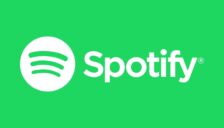Liz Pelly, writing for The Baffler:
[A] more careful look into Spotify’s history shows that the decision to define audiences by their moods was part of a strategic push to grow Spotify’s advertising business in the years leading up to its IPO—and today, Spotify’s enormous access to mood-based data is a pillar of its value to brands and advertisers, allowing them to target ads on Spotify by moods and emotions. Further, since 2016, Spotify has shared this mood data directly with the world’s biggest marketing and advertising firms.
This creeps me out.


